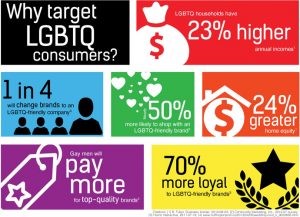The word “queer” is by definition a representation of anti-normative content. Queer media serves to provide an advocacy-focused lense through which underrepresented identities can see themselves realized on the screen particularly in the LGTBQIA+ community. Animation, for example, is just one medium that has come a long way. Historically, whether it was the animators depiction or the audience’s perception of “queerness”, queer-coded or stereotypical characters were widely accepted as the butt of comedy. In 2018, Cartoon Network’s “Steven Universe” made history showing the first cartoon gay kissing scene. This was done with the intention of normalizing gay relationships particularly in the minds of youth. Many popular TV shows have followed suit not solely producing “gay characters” but ultimately characters who are gay. This allows characters to be more complex than their sexual orientation and demonstrates that identities are multi-faceted. However, progress has not come without challenges. Author Jake Pitre for the Columbia Journal Review suggests that queerness in the media is largely dependent on how profitable the content is. In January of 2019, Grindr laid off their entire editorial and social media staff (Pitre, 2019). Further, BuzzFeed announced mass layoffs, including many that covered LGBTQIA+ stories (Pitre, 2019). This growing concept of queer capitalism and companies profiting off of major events such as Pride month speaks to the conditional nature of LGBTQIA+ support from the media.
Pitre, J. (2019, March 19). Surviving the boom and bust of queer media. Columbia Journalism Review. Retrieved September 15, 2021, from https://www.cjr.org/first_person/queer-media.php.

Duke, A. (2015). “Why Sell to Lgbt Shoppers?”. Feeling ambivalent about Queen City Pride. photograph, BriarPatch Magazine. Retrieved September 14, 2021, from https://briarpatchmagazine.com/articles/view/feeling-ambivalent-about-queen-city-pride.

The concept of queer or rainbow capitalism is something that I have seen talked about online, especially during pride month. During the month of June a lot of companies will bring out themed rainbow covered products and social campaigns. It is unfortunate to see that companies will often only support such groups when they can profit from it and will often be quick to revert to their normal campaigning as soon as the month ends.